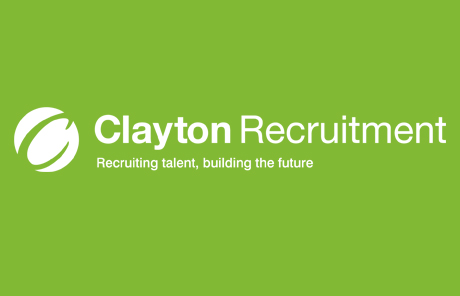
How to prepare for interviewing candidates
- July 4, 2018
Long-winded, time-consuming and hard work; if any of those words spring to mind when you hear the phrase ‘interview process’, you’ll be relieved to know that there is a better way.
An interview checklist streamlines the process – whether you’re hiring managerial or support staff, a clear process and list of requirements ensure you take on the best candidates for your business.
Because it’s not just how the candidate performs in the face-to-face interview that matters. HR Departments and recruiters need to prepare too. According to Leadership IQ, 46% of hires fail within the first eighteen months, with ‘poor interpersonal skills’ rather than technical ability being the main reason. It’s clear then that interviewers have a lot more than just qualifications to consider when interviewing potential employees.
From the very start of the process to the end, an interview checklist will prepare your company and recruiter, help you ask the right questions at interview and make the right decision. We’ve broken down the ‘interview process’ into three steps to success: preparation, the interview itself, and decision making.
Preliminaries/Preparation
Successfully hiring the right team member requires preparation. There are two prongs to this:
- Timings – Don’t try and rush the process as you will increase the risk of making a hasty decision. Ensure that the timings of the interviews work for all involved in the hiring process and leave enough time for note comparison and decision making.
- Communication – Make sure there is a good two-way flow of information with your recruiter, whether they are in-house or external. Establish how information about candidates will be passed to the business – and how often. Too infrequently and you may miss out on candidates, too regularly and it may be too piecemeal.
- Pareto Principle – The Pareto Principle is the idea that 80% of possible effects will come from 20% of the possible causes. Also known as the 80/20 rule, the Pareto Principle can be applied to interviewing, with the candidate speaking for 80% of the time and the interviewer for 20% of the time. This allows the candidate to answer questions fully, which helps give a better insight into suitability for the role.
The interview
An effective interview process will help those candidates that fit your criteria to shine and will reveal those that are not such a good match. However, it can only be effective if careful thought has been given beforehand to what’s required of the successful candidate. Think also about the interview format and additional requirements. For example, a business presentation is a popular requirement for candidates to prep for an interview. A word of warning – think about what these requirements are for and what they will reveal about potential staff, before getting bogged down in interview ‘extras’.
Decide what you’re assessing at the interview stage(s) ahead of time: hands-on skills and knowledge, fit, or potential for development if hiring someone in an apprenticeship or training capacity for instance.
Before the interview, look over the CV and note any areas you want to ask about. For example, gaps, achievements and why the candidate is moving. Notice how the candidate talks about their current employer; any unprofessional comments are likely to be a warning signal.
On the day, ask some initial questions to build rapport. This will paint a fuller impression of the individual than is provided by their CV. Enquire about their experience; the more demanding and senior the role, the more detailed the questions. Be clear amongst colleagues and recruiters what skills are ‘nice to have’ and what’s ‘need to have’ – check these off throughout the interview.
Competency-based interview questions give the candidate a chance to answer fully, helping to keep the interview in line with the Pareto Principle. Here are some example questions and responses:
“Tell me about your most difficult work experience? How did you approach it? What was the outcome?”
Listen out for positive action and problem solving – maybe the candidate enlisted help or used their experience to work around the issue. Even if the outcome was not successful, observe whether the candidate maintained a positive attitude or learnt anything.
“Give me an example of where you have had to handle a difficult situation? What was the background? What did you do? How did they react?”
A candidate that vents about the customer is a big red flag. When they are explaining the background look for clues that the candidate can see things from another’s perspective. Positive action and an ability to diffuse a situation are good signs.
“Give me an example of when you had to work to an important deadline? How did you ensure your deadline was met?”
This provides insight into how a candidate copes under pressure, as well as their organisation and time management skills. The reply ‘I was up until 4 a.m.’ might sound dedicated on the face of things but doesn’t suggest good organisational skills.
Finally, asking a candidate about their career aspirations and progression gives you an idea of how they see themselves in your business. An assured answer also demonstrates that the candidate has a clear vision for their own progression – and this clarity of vision could be beneficial to your company too.
The aftermath
Space for reflective thought is important, and it’s a good idea to take some time to compare notes with colleagues and your recruiter. Wait until you’ve seen all of the candidates before jumping to any conclusions – if interviewee number two impressed you and swung your vote, that’s great. But what if the last person on the list is even more suitable?
Finally, relaying the information to candidates – and being able to make a swift offer once the decision has been made – is the last piece of the puzzle. Decide what the process will be for feedback to unsuccessful candidates – and who will deliver it. And once you’ve reached the end of your checklist and are ready to say a resounding ‘yes’ to one lucky candidate, who is the best person to make the offer? Your recruiter will be able to help, although it may be more personable coming from the company.
Working through a process before, during and after will ensure the interview goes smoothly and provides the result you’re looking for. Our interview checklist is full of tips to help you add another effective team player to your business. Click here to contact us or call 01772 259 121 to request your free copy.
And if you enjoyed this blog, you may also like to read our blogs on ‘8 steps to successfully recruiting new staff’ and ‘How to shortlist candidates effectively and efficiently’. Don’t forget you can register a vacancy with us online or give us a call to see if we can assist.






